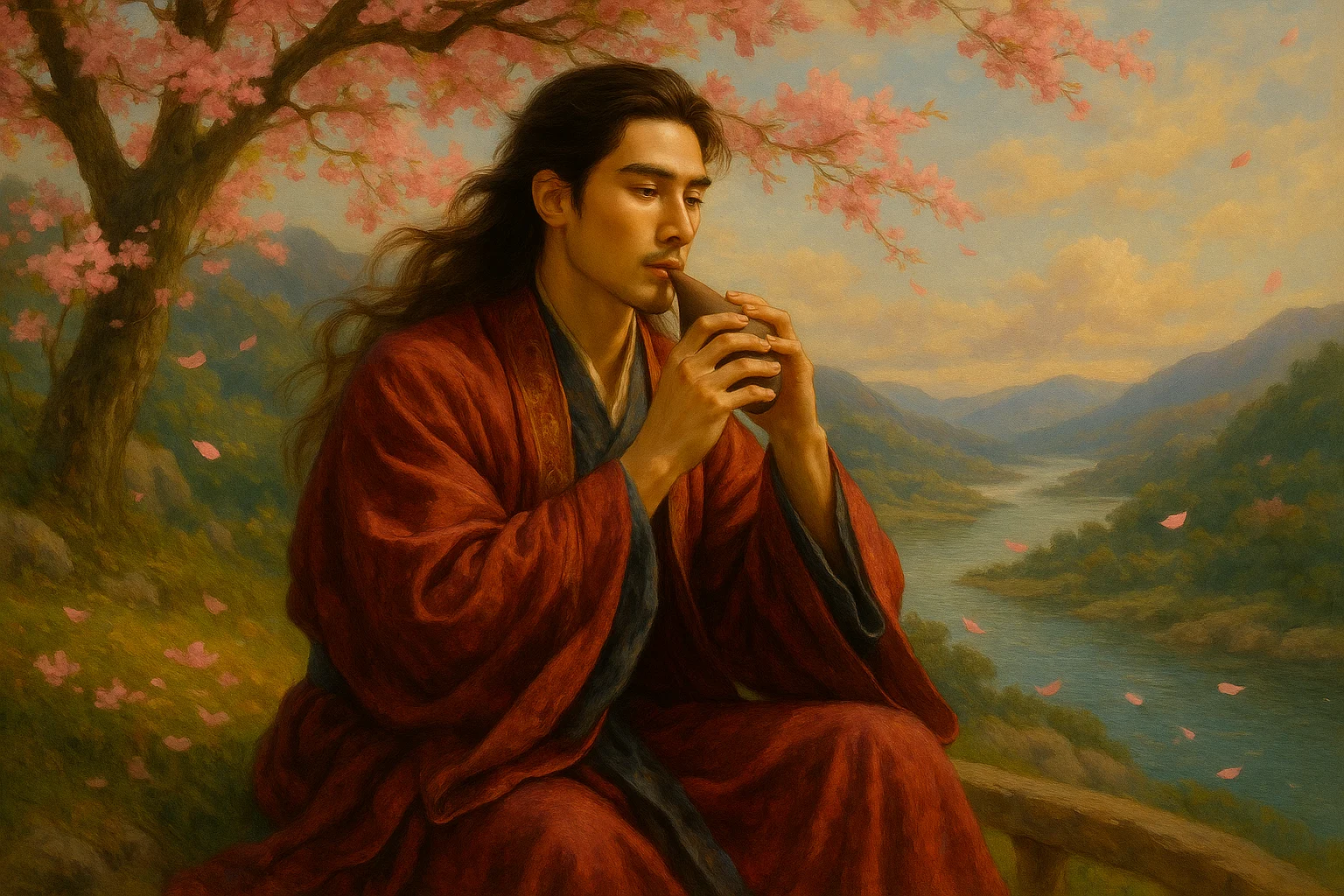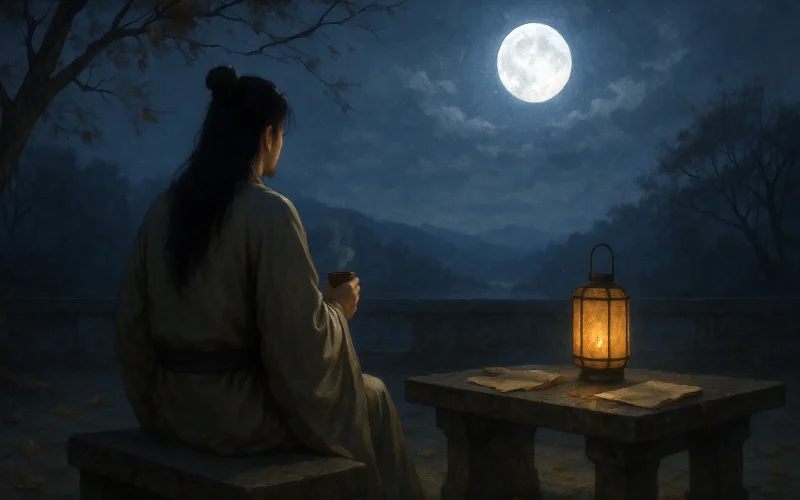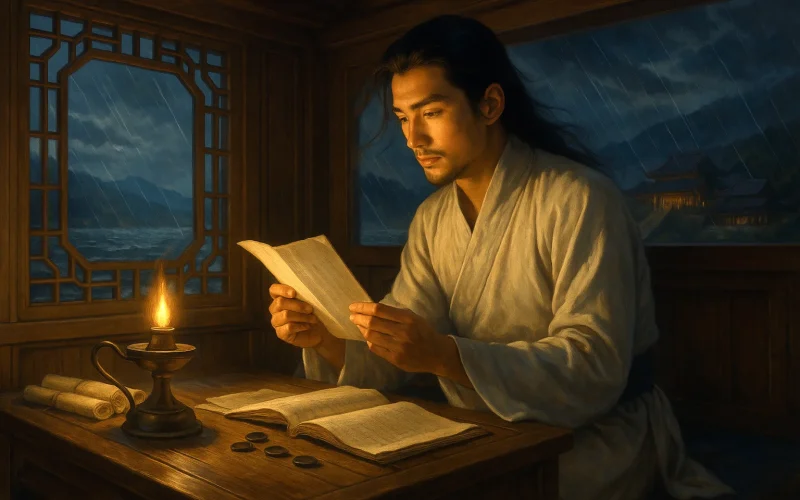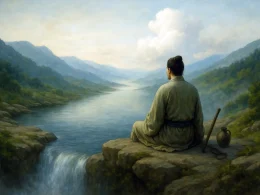Letters can't pass over thousands of mountains and streams.
How much I thank you for you have sent me your dreams.
I'm sorry that in illness I can't tell old friends from new;
I dream of indifferent people, but not you.
Original Poem
「酬乐天频梦微之」
元稹
山水万重书断绝,念君怜我梦相闻。
我今因病魂颠倒,唯梦闲人不梦君。
Interpretation
IComposed in 817 CE during Emperor Xianzong's Yuanhe era, this work responds to Bai Juyi's poem sent while both poets endured political exile—Yuan Zhen to Tongzhou, Bai Juyi to Jiangzhou. Separated by vast distances and severed communication, they turned to poetry as lifelines. Yuan Zhen's reply not only reciprocates his friend's longing but also voices his own suffering—illness, displacement, and quiet resilience.
First Couplet: « 山水万重书断绝,念君怜我梦相闻。 »
Shānshuǐ wàn chóng shū duànjué, niàn jūn lián wǒ mèng xiāng wén.
Mountains and rivers sever all letters we send; Missing you, I cling to dreams where our voices blend.
The opening lines depict their exile's harsh reality: nature's barriers silencing correspondence. The second line, referencing Bai Juyi's mention of dream meetings, acknowledges his friend's compassion while hinting at helpless gratitude.
Second Couplet: « 我病君来高卧处,今朝还到梦中行。 »
Wǒ bìng jūn lái gāo wò chù, jīnzhāo hái dào mèng zhōng xíng.
Ill, I saw you at my bedside—a vision so stark; Dawn breaks, yet you linger, walking through my dark.
Here, dreams bleed into waking life. Yuan Zhen's illness heightens his yearning, blurring reality and illusion. The final image—Bai Juyi's spectral presence lingering at dawn—captures exile's cruel paradox: intimacy sustained only in unreality.
Holistic Appreciation
Though brief, the poem pulses with layered emotion. The first couplet mourns physical separation; the second transcends it through dreams. "Mountains and rivers" (山水万重) and "dream-walking" (梦中行) symbolize both exile's weight and friendship's defiance. Yuan Zhen bares his vulnerability—not just as a banished official, but as a friend clinging to whispers across the void.
Artistic Merits
- Dream as Narrative Thread: The poem orbits Bai Juyi's dream motif, using it to bridge distances and realities.
- Unadorned Eloquence: Without embellishment, Yuan Zhen's plainspoken lines (e.g., "Ill, I saw you") ache with raw sincerity.
- Dialogic Harmony: As a response poem, it mirrors Bai Juyi's themes while asserting Yuan Zhen's voice—a duet of shared solitude.
Insights
This poetic exchange epitomizes friendship as antidote to exile's isolation. When politics silenced voices, verse became their clandestine language. Yuan Zhen and Bai Juyi model how art sustains connection against erasure—a lesson for any era: in darkness, creativity and camaraderie forge light.
Poem translator
Xu Yuanchong (许渊冲)
About the poet

Yuan Zhen (元稹), 779 - 831 A.D., was a native of Luoyang, Henan Province, who was poor in his early years, but later became an official and finally died of a violent illness. He was friendly with Bai Juyi and often sang with him, and was known as “Yuan Bai”.












